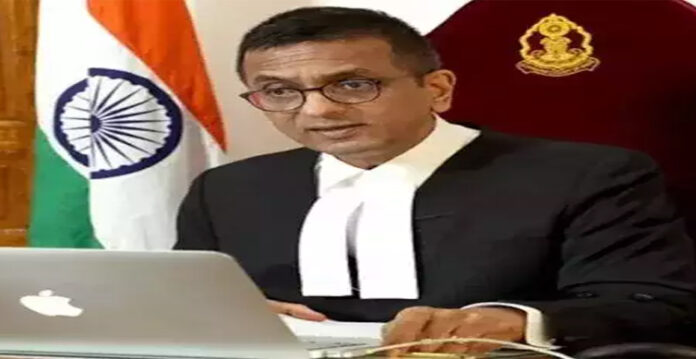To streamline legal processes, Chief Justice of India (CJI) DY Chandrachud has introduced the FASTER 2.0 portal. This portal is designed to relay information about court orders related to the release of prisoners directly to jail authorities, trial courts, and high courts, thereby expediting the release process. The current system experiences delays in the release of prisoners from jail, and the new portal aims to address this issue by facilitating the swift implementation of court orders.
During a Constitution Day event held in the Supreme Court yesterday, Chief Justice Chandrachud officially launched the Faster 2.0 portal. According to reports from ET, CJI Chandrachud highlighted the initiation of a portal where court orders for a person’s release would be instantly communicated to jails, trial courts, and high courts for immediate execution. The judicial system is increasingly emphasizing the integration of technology to enhance efficiency.
Presently, the release process is hindered by delays. Under the existing protocol, a physical copy of the official court order for the release of an individual from jail traverses multiple government departments before reaching the jail authorities. Only upon receipt of the order copy do the jail authorities release the prisoner. Consequently, despite the court issuing a release order, the actual release from jail is considerably time-consuming.
Also Read: Kavitha Written a Letter to Chief Justice of India, over Release of Bilkis Bano Rapists
The FASTER 2.0 portal, now operational, is expected to facilitate rapid communication among relevant authorities, contributing to the enhancement of the country’s judicial system. In addition to Faster 2.0, CJI Chandrachud also unveiled the Hindi version of the e-SCR portal, offering access to Supreme Court orders in Hindi.
During the event, Chief Justice Chandrachud underscored the Supreme Court’s role as a ‘people’s court,’ encouraging the public not to fear approaching the court. He emphasized that disputes can be democratically resolved under the Constitution, with courts playing a crucial role in upholding norms and procedures.
(This story is sourced from a third-party syndicated feed. Raavi Media takes no responsibility or liability of any nature. Raavi Media management/ythisnews.com can alter or delete the content without notice for any reason.)


